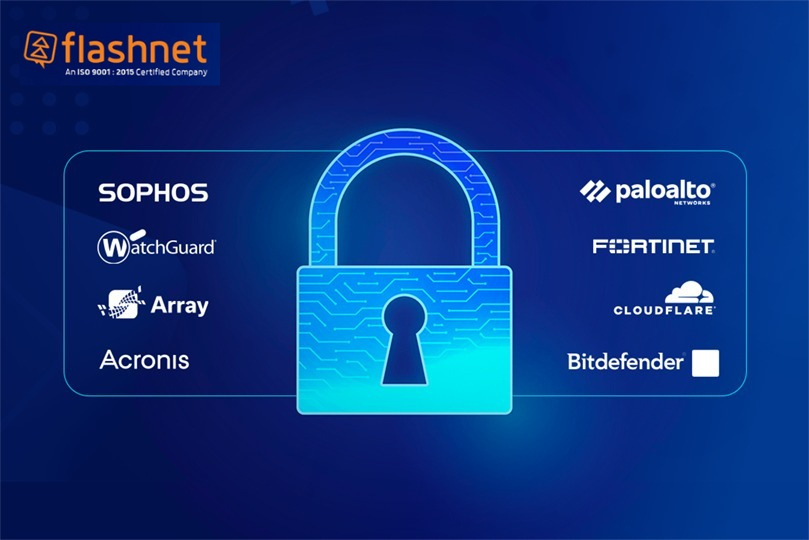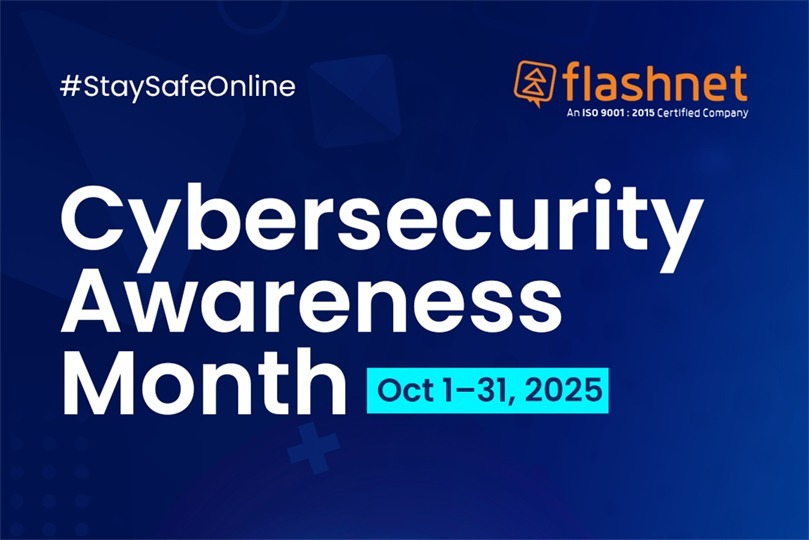Cybersecurity Awareness Month 2025 Checklist: Is Your Business Prepared?
Every October, businesses around the world observe Cybersecurity Awareness Month, a global initiative that highlights the importance of protecting data, networks, and digital infrastructure. For 2025, the message is clearer than ever: cyber threats are evolving rapidly, and businesses—big or small—cannot afford to ignore cybersecurity.
In Tanzania, where digital transformation is accelerating across industries like finance, healthcare, education, and e-commerce, the need for strong security frameworks is critical. This blog offers an interactive checklist to help your business assess its readiness for Cybersecurity Awareness Month 2025. Use it as a self-assessment tool to identify gaps and prioritize next steps.

Why Cybersecurity Awareness Month Matters in 2025
Cybercriminals are becoming more sophisticated, using AI-driven attacks, phishing campaigns, ransomware, and social engineering tactics to exploit vulnerabilities. The financial and reputational damages from a single breach can be devastating, especially in high-growth markets like Tanzania.
This is why engaging with Cybersecurity Awareness Month is more than symbolic—it’s a chance for your organization to align with best practices, strengthen defenses, and show clients and partners that you take data protection seriously.
Partnering with a trusted cyber security company in Tanzania ensures that your awareness activities are backed by professional expertise and solutions tailored to local business needs.
The Cybersecurity Awareness Month 2025 Interactive Checklist
Here’s a practical checklist your business can use to assess preparedness. For each item, mark whether your organization is Ready or Needs Attention.
1. Employee Awareness and Training
- Do employees receive regular cybersecurity training?
- Do staff know how to recognize phishing emails and suspicious links?
- Is there a clear process for reporting potential security incidents?
Tip: Human error is still the number one cause of data breaches. Train staff through workshops, simulations, and awareness campaigns.
2. Strong Password and Authentication Policies
- Do all systems enforce strong password requirements?
- Is multi-factor authentication (MFA) enabled for email, VPNs, and cloud apps?
- Are password managers or secure credential storage tools in use?
Tip: A weak password policy leaves the door wide open for cybercriminals. MFA reduces the risk of unauthorized access by over 90%.
3. Regular Security Updates and Patch Management
- Are operating systems and applications updated regularly?
- Is there an automated patch management system in place?
- Do you audit devices to ensure compliance?
Tip: Outdated systems are prime targets. Hackers actively exploit known vulnerabilities, often within hours of disclosure.
4. Data Backup and Recovery Strategy
- Are backups performed daily, weekly, or monthly?
- Are backups stored securely (offsite or in the cloud)?
- Has your business tested data recovery in the past six months?
Tip: A backup is useless unless you can restore it quickly. Simulate recovery scenarios to be confident your plan works.
5. Endpoint and Network Protection
- Do all company devices have updated antivirus/EDR solutions?
- Is your network protected by a firewall?
- Is Wi-Fi encrypted and secured with strong credentials?
Tip: Remote work has increased endpoint vulnerabilities. Endpoint Detection and Response (EDR) tools give businesses real-time visibility into device activity.
6. Incident Response Plan
- Does your business have a documented incident response plan?
- Are staff aware of their roles in case of a breach?
- Has the plan been tested through a tabletop exercise or simulation?
Tip: Speed matters. The faster your business responds, the less damage attackers can do.
7. Vendor and Third-Party Security
- Do you vet third-party vendors for cybersecurity compliance?
- Are contracts updated with data protection clauses?
- Do vendors follow international standards
Tip: A weak vendor can be an entry point for hackers. Supply chain attacks are on the rise globally.
8. Cloud Security Measures
- Are your cloud services configured securely with access controls?
- Are critical data sets encrypted both at rest and in transit?
- Do you monitor cloud applications for unusual activity?
Tip: Many breaches occur due to misconfigured cloud storage. A trusted cybersecurity company in Tanzania can audit your cloud setup.
9. Compliance and Legal Requirements
- Does your business comply with Tanzanian ICT laws and global data protection regulations?
- Are financial and healthcare systems aligned with industry-specific standards?
- Do you conduct regular compliance audits?
Tip: Non-compliance doesn’t just risk fines; it undermines trust with your clients and partners.
10. Continuous Monitoring and Threat Intelligence
- Is your IT team actively monitoring systems 24/7?
- Do you use SIEM (Security Information and Event Management) or SOC (Security Operations Center) solutions?
- Are you subscribed to threat intelligence updates?
Tip: Cyber threats evolve daily. Continuous monitoring gives businesses a proactive defense.
Scoring Your Business
- 8–10 “Ready: Excellent! Your business is well-prepared for Cybersecurity Awareness Month 2025.
- 5–7 “Ready: Good progress, but there are gaps to address urgently.
- Below 5 “Ready: High risk. Partnering with one of the best cybersecurity companies in Tanzania is strongly recommended.
How Cybersecurity Companies Support Awareness Month
Cybersecurity Awareness Month is not just about theory—it’s about action. Partnering with expert cybersecurity companies in Tanzania can help you:
- Conduct employee training and awareness campaigns.
- Perform penetration testing and vulnerability assessments.
- Set up managed security services for 24/7 monitoring.
- Provide cloud, endpoint, and network protection solutions.
- Ensure compliance with both local and international security frameworks.
By choosing the best cyber security company in Tanzania, you gain access to expertise, advanced tools, and a partner that helps you stay ahead of emerging threats.
The Flashnet Advantage
At Flashnet, we understand the unique challenges Tanzanian businesses face in the digital era. From connectivity to cybersecurity, we provide end-to-end managed solutions that protect, monitor, and optimize your digital operations.
During Cybersecurity Awareness Month 2025, we encourage businesses to use this checklist as a starting point—and then take the next step by working with a trusted partner. Awareness is important, but action is what truly safeguards your organization.
Final Thoughts
Cybersecurity is not a one-time task—it’s an ongoing journey. Cybersecurity Awareness Month 2025 is the perfect opportunity to evaluate your defenses, train your employees, and strengthen your business against growing threats.
If your checklist score revealed gaps, now is the time to act. Whether it’s upgrading security systems, training employees, or setting up advanced monitoring, working with the best cybersecurity companies in Tanzania ensures that your business is resilient and ready for the future.
Last Updated on October 27, 2025 by Nandu G N

